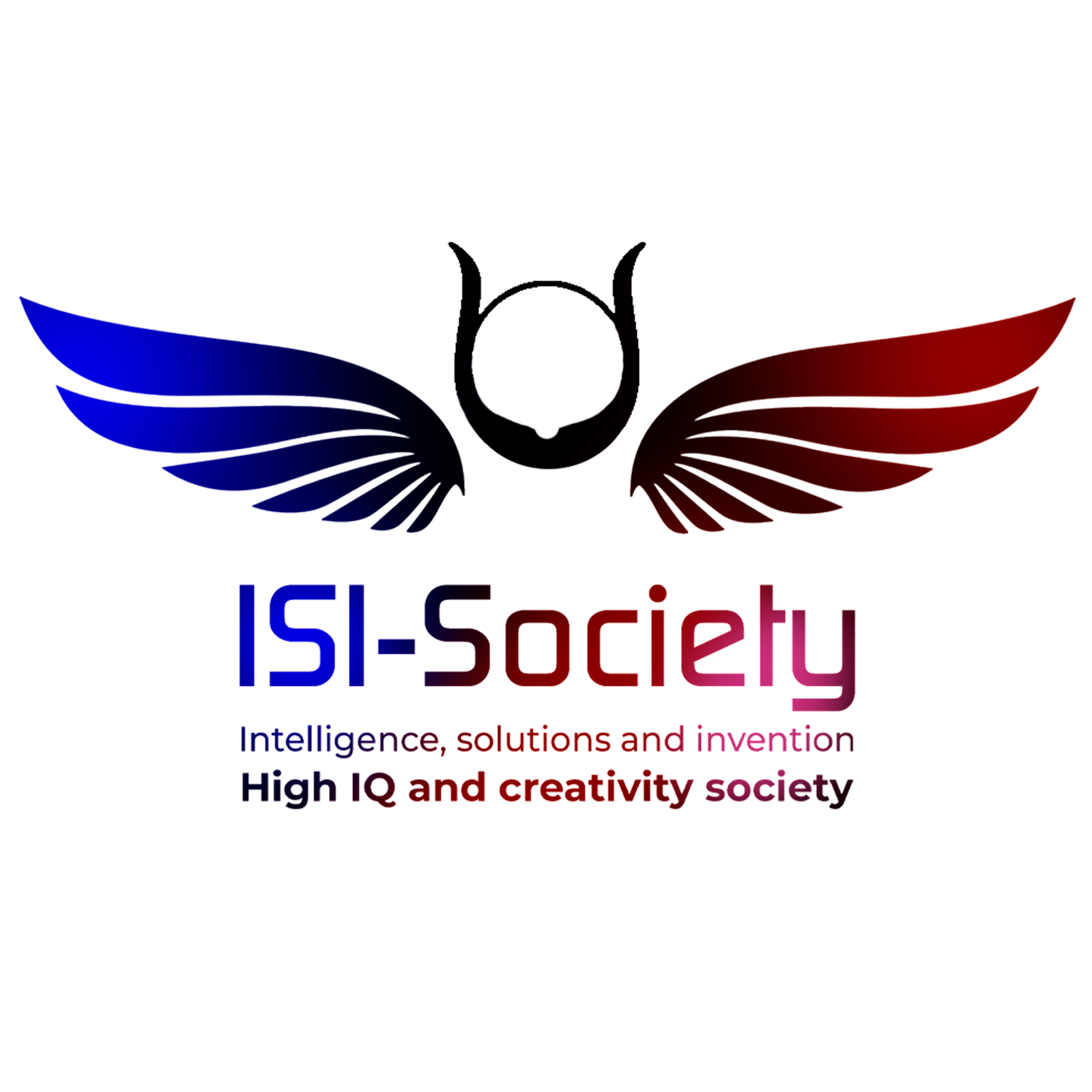Leading high IQ societies play a crucial role in grouping individuals with exceptional cognitive abilities. They set stringent admission criteria, requiring proof of IQ through scientifically validated and supervised tests, eliminating any doubts about the authenticity of the results. These tests are often employed in research studies that explore the nature of intelligence and its applications.
The ISI Society follows this tradition but goes further, requiring not only evidence of high IQ but also proof of innate creativity. Innate creativity here refers to the ability to generate new ideas, original solutions, and innovative approaches to complex problems, characteristics not necessarily captured by traditional IQ tests.
Since its inception, the ISI Society was designed with the goal of bringing together people with high global intelligence. Although traditional IQ tests like the WAIS assess multiple facets of intelligence, including logical reasoning, working memory, processing speed, and spatial skills, they do not directly measure emotional intelligence, which is more closely related to social intelligence and creativity. Including creativity as a criterion ensures a more holistic measure of intelligence.
The ISI Society adopts the DWRI concept (‘Development of Wide Regions of Intellectual Interference’), which promotes a global view of intelligence, where a high IQ is not just an isolated indicator but a catalyst for broad cognitive effectiveness when various regions and sub-regions of the brain operate efficiently, contributing to comprehensive cognitive development.
It is important to highlight that low emotional intelligence in many high IQ societies often leads to erroneous judgments, persecutions, and conflicts. However, the ISI Society, in over two decades of existence, has distinguished itself by an atmosphere free from these issues, demonstrating the effectiveness of its model of including criteria related to emotional and social intelligence in addition to IQ.
The goal of the ISI Society is not to elitize but rather to provide a space where people of high intellectual capacity can interact, discover themselves, conduct research, and explore their creative abilities. The society establishes that an IQ score above 148 with a standard deviation of 15 aligns with its symbolic mark of 151 points (sd 16), reflecting a homeostatic standard of intelligence and emotionality.
Reliable tests have their upper limit at 160 points. It is interesting to note that many of the most notable creative minds in history had IQs ranging from 144 to 155 points, suggesting that members with scores close to 148, but with notable creative achievements, even if slightly below this threshold, are also considered for admission.
Thus, the ISI Society establishes itself as a reliable reference for identifying the truly most intelligent people in the world, recognizing that beyond IQ, emotional intelligence, social intelligence, and creativity are fundamental indicators of full and global intelligence.

